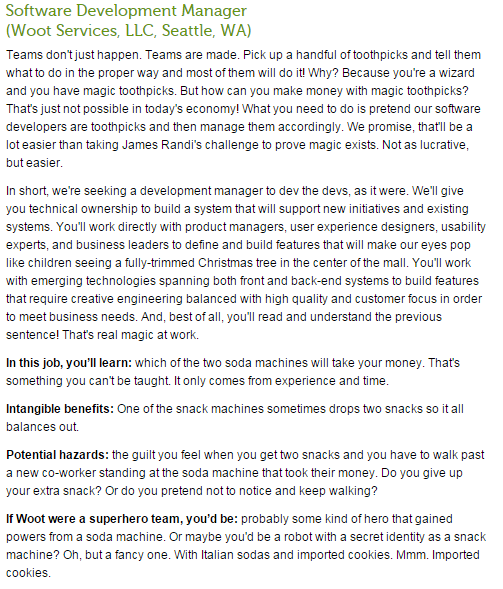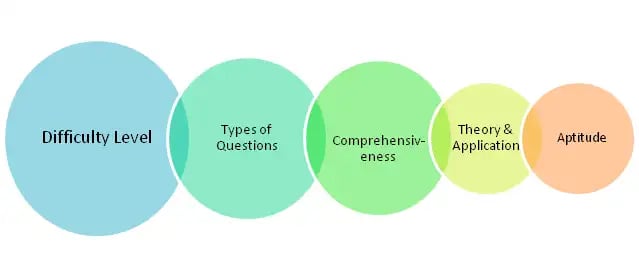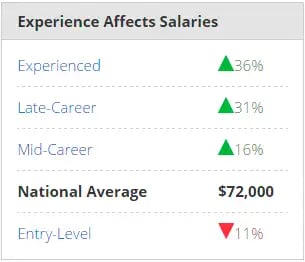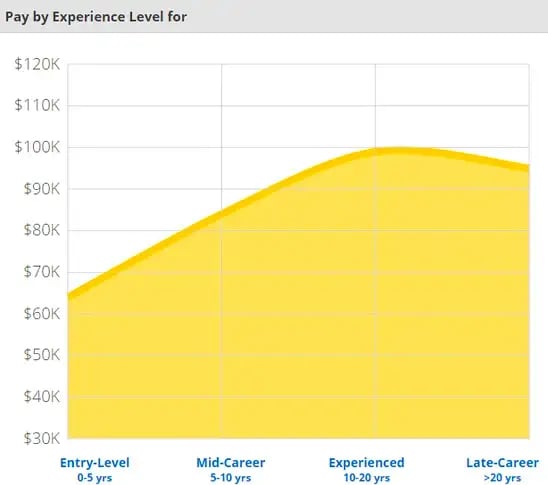Hiring Java developers or good coders is one of the toughest challenges. By now, you must have recognized that recruiting a quality candidate means doing a lot more than posting on job boards.
Java developer roles and responsibilities play a vital role in their employers' core businesses. It's no surprise that to hire Java developers requires a complex recruitment process.
Thus, we have gathered five important steps for effective recruiting in this article. iMocha, an skill assessment software, has come up with an effective recruiting strategy to hire new talent for a position of a developer within your organization you need to:
- Structure awesome job descriptions,
- Use some amazing and time-saving sourcing tools
- Integrate pre-employment skill testing software
- Interview relevant candidates
- Offer salary and benefits at par with the industry
Learn how to recruit java developers with these five essential steps, that will allow you to be as successful as possible in your hiring efforts!
1. The Perfect Job Description for your Perfect Candidate

The way you structure your job description plays a bigger role than you think. Writing a great job description is the first step towards attracting top talent to join your company. A good job description not only attracts candidates but the right candidates. Writing a great job description is not easy. And no, you just cannot copy-paste it from Google!
What it’s all about?
A comprehensive job description comprises the following areas:
- Title of the job
- Where the role sits within the team, department and wider business
- Who the role reports to, and other key interactions
- Key areas of responsibility and the deliverables expected
- Short, medium and long-term objectives
- Scope for progression and promotion
- Soft skills and personality traits necessary to excel
- Benefits and perks
- Convey the organization’s culture and identity through videos
Can you do anything to make your IT department more amazing and innovative? Can you make it the place that Java Developers flock to? Consider exactly what Java Developers want from a company, and provide it! Talk about the particular position and what it is like in your organization. Provide a link for the applicants to learn more about the job role. This gives the candidates insight into what they should expect if they were to work there. Writing a great job description is the first step towards attracting top talent to join your company.
Have a look at some of the sample Job descriptions and how companies convey their culture to attract talent.
Job Description by Woot for Software Development Manager

|
Accelerate Your Java Hiring! With iMocha, create tailored skills assessments to identify top talent efficiently. Cut your hiring time in half and ensure a perfect fit for your niche Java roles. |
A job description by Meetup for Full Stack Engineer:
.webp?width=566&height=371&name=Meetup-Job-Description-4%20(1).webp)
Here is Facebook conveying their company’s culture:
Interesting! Isn’t it?
Now for designing the perfect job description for Java developers, you need to be clearer about the skills you need in a candidate for a particular post or job, the more relevant candidates will apply for that particular job. Identifying java developer required skills for the particular is a one-step towards finding a great candidate. So now, what is the "good to have" skills for a Java Developer?
Essential Java Developer Skills
Clearly define a list of all required skills for the position. Also, make sure to state which class of libraries you use in your projects, and which platforms you will target. This will help you pinpoint a great Java developer with all needed experience relevant to your specific project. Below I have developed some of the skills set by analyzing job descriptions and talking to various technical recruiters.
So, it is essential that the Java Developer has a strong skill-set in the following:
I. Java Fresher Developer (Entry Level)
Java Fresher basically performs the task of communicating with the team and developing the technology by using the web services. The key skills include:
- Proficient in Java, with a good knowledge of its ecosystems
- Solid understanding of object-oriented programming
- Basic understanding of the class loading mechanism in Java
- Familiarity with the concepts of Data Types, Threads, Servlets
Assess the candidates’ knowledge in HTML, XML, JDBC, J2Ee, struts, web technologies, web application development.
II. Junior Java Developer
This skills set is designed for a candidate with 0 to 2 years of experience. In addition with the skills of Java fresher developer, the following are necessary for Java Junior Developer:
- Knack for writing clean, readable Java code
- Proficient understanding of Java Scripts and Pure Servlets.
- Proficient understanding of Servlets, Servlet methods, Servlet session, Servlet parameters.
III. Senior Java Developer
A senior Java developer may analyze complex problems, develop documentation, review coding, and evaluate the development process. This skills set is designed for a candidate with 3 to 6 years of experience. In addition with the skills of Java Junior developer, the following are necessary for Java Senior Developer:
- Solid understanding of object-oriented programming, Overloading methods & Argument passing, Inheritance-Abstract Class & Super
- Knack for writing clean, readable Java code
- Deep knowledge and experience of J2EE with dependency injection, messaging queues, EJBs.
- Deep knowledge of Hibernate, Error handling and debugging concepts
- Experience of My SQL basic concepts, commands, and writing complex SQL queries
IV. Java Architect
A Java Software Architect has objectives of defining correct requirements, tracking of new technologies and application of those to make robust Software Architecture. An architect directs the project at the front end.
- Proficient in data types, class fundamentals, exception handling, multi-thread programming, Collection Interface, Multithreading basics, Creating Exceptions, Control Statements
- Deep knowledge and experience of J2EE with dependency injection, messaging queues, EJBs, Error handling and debugging concepts
- Deep knowledge of Hibernate, Core Interfaces, Session Interfaces
- Experience of My SQL basic concepts, tables, indexes, statement and identifiers, commands, and SQL queries
- Proficient knowledge and experience Java designs patterns
Essential Soft Skills
- Aptitude: Good at data analyzing, extensive skills in fastest comprehension of math problem and finding the solution.
- Communications Skills: Developers need to be effective communicators. Candidates interacting with clients, managers, QA team, able to communicate his ideas especially in a networked environment go a long way.
- Analytical Thinking & Problem Solving Ability: High in critical and constructive thinking. If any candidate is good in analytical thinking then he is good in problem solving and analysis.
I recommend you to use this java developer skills list as a checklist next time when you hire Java Developers.
|
Technical assessments? Check! One-way video interviews? Check! Live Coding Interview? Check! Whiteboard assessments? Check! Custom assessments for your open job roles? Check! iMocha offers all! |
2. Some of the Amazing Sourcing Tools
Website Career Page
If you are not attending the website job seeker, you may be missing out on the Best Candidates. Obviously, you don’t want to lose the candidates who are in high demand and watch the competition take these candidates off the market. No organization wants to create a bad image by not responding to the applicants. Integrate your company’s career page with a link that will direct the job seekers to fill in his details and yes, saves you from creating a bad image of not responding to the applicants. This will help you to attend every job seeker and you have a ready talent pool to interview further. You can use iMocha’s career page integration feature.
Referrals
The first step of any hiring process should be asking your existing employees if they know someone good for the role. If we accept that to gain new business through referrals is an attractive proposition, the same is for recruitment arena
Why? Research a show getting a referral is a cheaper way to hire, a faster way to hire, generally produces a better hire and lowers the turnover rate at your company.
Social Media Platforms
Social media has transformed the way people work, communicate and even, search the potential candidate for the organization. Gone are the days of ‘hard to find’ talent. Now, social media has made it possible to contact potential candidates directly. The key to using social media effectively is to identify and reach out to the target audience. And yes, being an active user too. Find out why you should exploit social media for recruitment?
Job Portals
There has been a paradigm shift in the way companies recruit thanks to the value, efficacy and ease-of-use of today's career sites. Online job sites have revolutionized the recruitment landscape for both employers and job seekers and largely increased the efficiency with which hiring decisions can take place. Here are the Top 15 Most Popular Job Sites.
Google Custom Search Engine
Customer Search Engine is a platform provided by Google that allows users to feature specialized information in web searches, refine and categories queries and create customized search engines, based on Google search.
In other words, you have the ability to create and put a Google search box on your webpage to make searching for your website’s content easier for visitors. But it’s not just your website you can create a CSE for! You can create a CSE for any website that is publicly available on Google and that means the likes of all your recruiting favorites like LinkedIn, Xing, and Viadeo. So why not give them a go now?
Boolean Search
As a recruiter, knowledge of and practical experience with Boolean search strings is an invaluable asset. Not only do Boolean strings help you find exactly the type of candidate you are looking for and more quickly, but Boolean strings can be implemented across a wide variety of job boards, databases and, of course, LinkedIn, making the time you spend sourcing more effective and far more efficient. Want to know how to use Boolean search operators? Give it a try.
Semantic Search
You must have probably heard something about “semantic search” and perhaps you would like to know more. Semantic search is most often used to describe searching beyond the exact word for word match and into the meaning of words and phrases at the conceptual and contextual level, and sentences at the grammatical level.
When sourcing candidates, semantic search can be achieved at the conceptual level when a search for a specific term (e.g., Java) yields matches on related terms (e.g., J2EE, EJB, servlets, etc) words that are related conceptually.
Words and phrases by themselves can be somewhat ambiguous, but are less so when taken in context – using surrounding words or passages that can shed light on the intended meaning.
For example, 'Java' is a software programming language, but it is also used to refer to coffee, and it is also an Indonesian island! A quick search for 'Java' will typically net you a mix of references to Java.
Semantic search helps you more quickly and easily cut through massive volumes of potential candidate information to help you find more of the right people faster than standard methods.
Know more about how semantic search applications for recruiting actually work.
|
Hiring time for niche roles skyrocketing? Use iMocha and create custom skills assessment to hire job-fit candidates and reduce time to hire by 50% |
3. Initial Level of Screening with Pre-Employment Testing
In building a technology team, bad hires are considered almost intolerable. In computer programming, making a bad hire (merely incompetent one, not even a malicious or unethical person) isn’t a minor mistake as it is in most fields. Rather, a bad hire can derail a project and, for small businesses, sink a company.
A typical technology company uses a phone screen as a filter followed by a code sample, and, after this, an all-day in-office interview involving design questions, assessment of “fit” and personality, and quick problem-solving questions.
The challenge is how to separate the wheat from the chaff. How do you identify the best talent when there are so many networks and channels open? To bring in top talent, you need to integrate one simple tool. Let’s zoom into this tool.
Developer Screening Tool - Pre-Employment Skill Testing
iMocha's Pre-Employment Skill Testing is a great tool to evaluate a Java developer. There are over 50 different types of pre-employment tests and over 1,000 screening test products available on the market.
iMocha strives toward helping hiring managers to quickly conduct the pre-hire screening and assessment for java developers. iMocha has ready to use java tests so that you can easily and efficiently assess candidates on coding skills. You can also create custom tests as per your specific requirements. The skill test library has more than fifteen java tests which cover each and every topic and frameworks of java.
iMocha’s Java tests enable employers to identify potential hires by evaluating working skills and job readiness. For this reason, the emphasis is laid upon evaluating the knowledge of applied skills gained through real work experience, rather than theoretical knowledge. Using powerful reporting, you will have a detailed analysis of test results to help you make better decisions and predict candidate success.
The science behind iMocha's Java Assessments
While providing a one-stop solution for screening Java developers, we make sure that our java skills assessment and java coding tests are based on the “science of assessment” and with “quality questions”. iMocha has come up with its “Science of assessment” methodology, which helps to screen candidates in a methodical way.
iMocha has hundreds of java questions and each question is checked for its quality and correctness. iMocha conducts regular research for various job roles in software development and relevant skills required.
Here are some of the important factors that determine how iMocha, pre-employment skill testing software masters in Java assessments.

I. Difficulty Level of Questions (Complexity)
The questions are structured in a way that a particular Java Coding Test will have a proper balance of easy to hard questions. iMocha has ready to use java coding test from basic to high level. And while recruiting Java developers, you need to assess candidates as per the experience they have. You can assess candidate based on the experience he has. Have a look at this Junior Java Developer Test.
II. Type of Questions
iMocha's Java assessment test include different types of questions.
- Multiple Choice Questions (MCQs): Multiple choice questions are a well-established, reliable method of assessing knowledge. Multiple choice questions are often used to test student’s knowledge of a broad range of content.
- True/False: True/False type of questions are most often used to assess familiarity with course content and to check for popular misconceptions.
- Fill in blanks: Fill in the blanks test candidates’ ability to recollect facts and trivia the candidates’ has learned.
- Descriptive: Descriptive answers are written responses, which can vary in length. It provides students with an opportunity to explain their understanding and demonstrate creativity but make it hard for students to arrive at an acceptable answer by bluffing.
Apart from this, iMocha provides Code Simulator with the java questions to evaluate the coding style or knowledge of a candidate.
III. Proper mix of Theory- and Application-Based Questions
A good assessment must give balanced emphasis to both theory and practical questions. iMocha provides a balanced mix of theory and practical questions for Java so that an employer can easily evaluate candidate’s knowledge on various concepts and coding too. And when it comes to practical questions for Java developer, coding knowledge of a candidate is evaluated.
You can use below different skill tests to evaluate Java skills of the candidate.
Core Java Online Test: Assess different core Java concepts like Java OOPs, string data handling, Lambda Function, Java 8 –stream, collections, and more.
Java MCQ Online Test to Assess Java Architect: Quantify skills required for Java architect role such as annotation, request mapping, autowiring, aggregation functions, and more.
Java Practical Test to Hire Mid-Level Java Developer: This coding test contains coding problems with medium difficulty level and can be used to hire Mid-level Java developer.
Advanced Java Online test to Hire Experience Developer: This coding test contains coding problems with high difficulty level and can be used to hire experienced Java developers.
Java Full Stack Developer Skill Test: Assess full stack Java developer skills like strings and regular expressions, Burndown chart, request mapping, collections, and more.
Liferay Online Test: Quantify skill like Liferay portlet applications, portlet classes, deployments in portlets, and more.
RESTful Test: Assess skills like JAX-RS based REST web services, RESTEasy based REST web services security and more.
Spring Boot Online Test: Employers can assess skills like Spring Boot annotations, Scripts, Dependencies, Security & Configuration, and more.
Spring Online Test: Assess skills like Spring modules, ORM, Dependency Injection, Spring core, and more.
iMocha provides Code Simulator for evaluating the coding style or knowledge of a candidate. This code simulator is available for seventeen different programming languages with basic to high-level question sets, including Java programming language. With every problem statement, four test cases are attached. With these test cases, iMocha’s code simulator evaluates the code and assigns the score to candidate’s answers.
IV. Comprehensiveness
Ask for any Java concept test, iMocha has it all. The Java skills assessment are made with the subject matter expertise (SME) so that you can evaluate the candidate or each single concept.
V. Aptitude
Studies have shown that the aptitude tests are quite accurate in predicting the potential for success. iMocha’s aptitude tests are fairly accurate when it comes to assessing a person’s strengths and weaknesses. Interviews alone may not provide the in-depth look at the candidate that is required, so the addition of an aptitude test offers greater insight into the candidate’s potential for success.
Integrated pre-employment skill testing software with your hiring process for faster, better and efficient hiring
|
iMocha offers coding assessments for over 35 languages, so why struggle hiring for niche roles! |
4. Interviewing relevant candidates
The way you write job descriptions determines the quality of applications you receive. And it’s the specific questions you ask in your interview process that helps you weed out the rest from the great ones.
If you’ve followed the steps above, a lot of the work should already be done for you. You would now have a good idea of what you’re looking for after going through Job description and skills required for ideal Java developer. And if you’ve structured your job description correctly, so you would now have narrowed your field of applicants down significantly.
All that’s left is to figure out which of the remaining candidates is the best fit for your position. And you’ve got a few different tools to do this…
Technique 1 - Theory Questions
For example, what is Abstraction?
Asking theoretical or concept based questions will let you assess the basic knowledge of the candidate. Here’s is a link to some good Java Interview Questions
Technique 2 - Practical Questions
For example, write a program that prints the numbers from 1 to 20.
A part of any interview is to evaluate a candidate's ability to do the job. To fill programming or systems positions, candidates' need to be evaluated on coding and language expertise. You can ask candidates to provide a coding sample and explain it line by line. This will give candidates a coding challenge to be analyzed and coded during the interview.
Technique 3 - Behavioral Questions
For example, tell me about a time when you were on a project that failed to meet a deadline.
Behavioral interviews are considered to be one of the best evaluators of a candidate's strengths and weaknesses because they reveal how the person actually acted in a certain situation.
Technique 4 – Tricky Questions
For example, can you override a private or static method in Java?
With tricky questions, you can assess the attitude and analytical thinking of the candidate. You can find some of the tricky java questions here.
Technique 5 - Fact-Based Questions
For example, what was your major of study? and How many years did you work at X company?
This one is pretty self-explanatory. The last type of question you’ll want to integrate into your interview is the fact-based question. This type of questions let you mix up the style of your interview. Nobody likes to spend an hour being drilled with hypothetical situations.
There is more to interviewing than tricky technical questions, so these are intended merely as a guide. Not every candidate worth hiring will be able to answer them all, nor does answering them all guarantee a ‘rockstar’ candidate.
5. How much to pay Java Developers
How much you should you pay when hiring a java developer?
According to Payscale, a java developer salary in the USA can range anywhere from $48,007 to $98,972 with a median salary of $70,278.
Pay by Experience Level for Java Developer

Below chart depicts the salary structure of Java Developer according to the experience

Get a more precise salary range for your exact position at PayScale.
Conclusion
Looking into what the future holds the increased demand for developers and designers iMocha cares about the quality and importance of the analytics that you are hiring. Therefore, we make sure that you are guided in the process of selection of such. Use a carefully planned and strategic approach to hiring a Java developer and you'll see the results.
Want to know how you can save over $1200 per hire while hiring Java Developers? Check this out.


.webp?width=538&height=288&name=Java-Concepts-5%20(1).webp)
